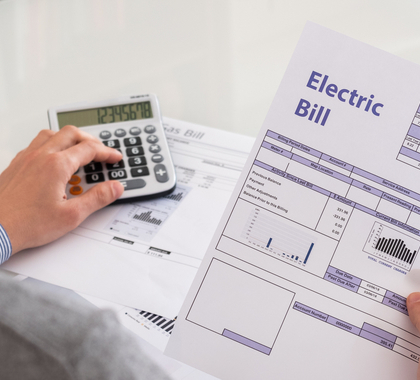The news out of Springfield hasn’t been promising these past few weeks. While unemployed and furloughed workers like Goodwill Industries’ Ashley Lyn are spending days on the phone trying to get relief money just so they can pay bills, little improvement has come. And yet, while some states are finding ways to reduce the costs of their residents during this pandemic, Illinois is taking actions that could raise rates.
At the end of April, Illinois utility regulators issued a call to repeal a pro-consumer federal order, called the Minimum Price Order Rule (MOPR). The rule seeks to offer customers the lowest energy rates available by requiring a full accounting of overall costs that consumers pay, including subsidies.
This is smart policy in Illinois, where the cost of subsidies are baked into the utility bills are paid directly by the consumer. For companies like nuclear giant Exelon, which receives over $230 million in aid every year from Illinois ratepayers, this level of honest transparency is particularly inconvenient. With all factors included, Exelon’s pricing far exceeds other electricity generators. Excluding some subsidy charges consumers pay from the cost calculations has allowed the company to hike user rates without having to admit it.
This is the type of accounting trickery that MOPR is designed to stop. It is also the reason Exelon is pushing legislation to have Northern Illinois withdraw from the competitive multi-market grid. It would allow the company to work directly with the State Utility to manipulate electricity prices without the new disclosure requirements.
Being billed as a clean energy bill that will help the working class, the Clean Energy Jobs Act (CEJA) would allow Exelon to qualify for even more subsidies paid off the backs of ratepayers. According to an analysis by Market Monitor, it would increase energy prices in the state by over $414 million – an astounding amount Illinois politicians should inspect closely.
Bailing out Exelon’s nuclear facilities has often been the rationale for implementing these added costs on Illinois consumers, but a March report concluded that all five of the company’s facilities in Northern Illinois should be profitable. During this crisis, Illinoisans should not have to pay higher utility bills to subsidize a Fortune 100 company that brings in over $30 billion a year.
If the pro-Exelon provisions within CEJA pass, low-income Illinoisans will face disproportionate difficulties. A recent study by Nature Energy found rate increases can have disproportionately negative health and financial impacts on vulnerable socioeconomic groups. Some 22% of the earners in the lowest income quintile’s paychecks go towards utility bills, for example, compared to just 5% and 7% respectively in the top two quintiles. In the long run, there is strong evidence that increased rates can push more people into poverty. During the economic strain of the pandemic, that threat has become far more severe in scope.
As it stands, removing the MOPR or implementing CEJA would create an enormous financial burden on our state’s residents at a time when they can least afford it. The best thing Illinois legislators and regulators can do is drop the proposals and move onto matters that are critical to the health and well-being of the citizens they represent.





